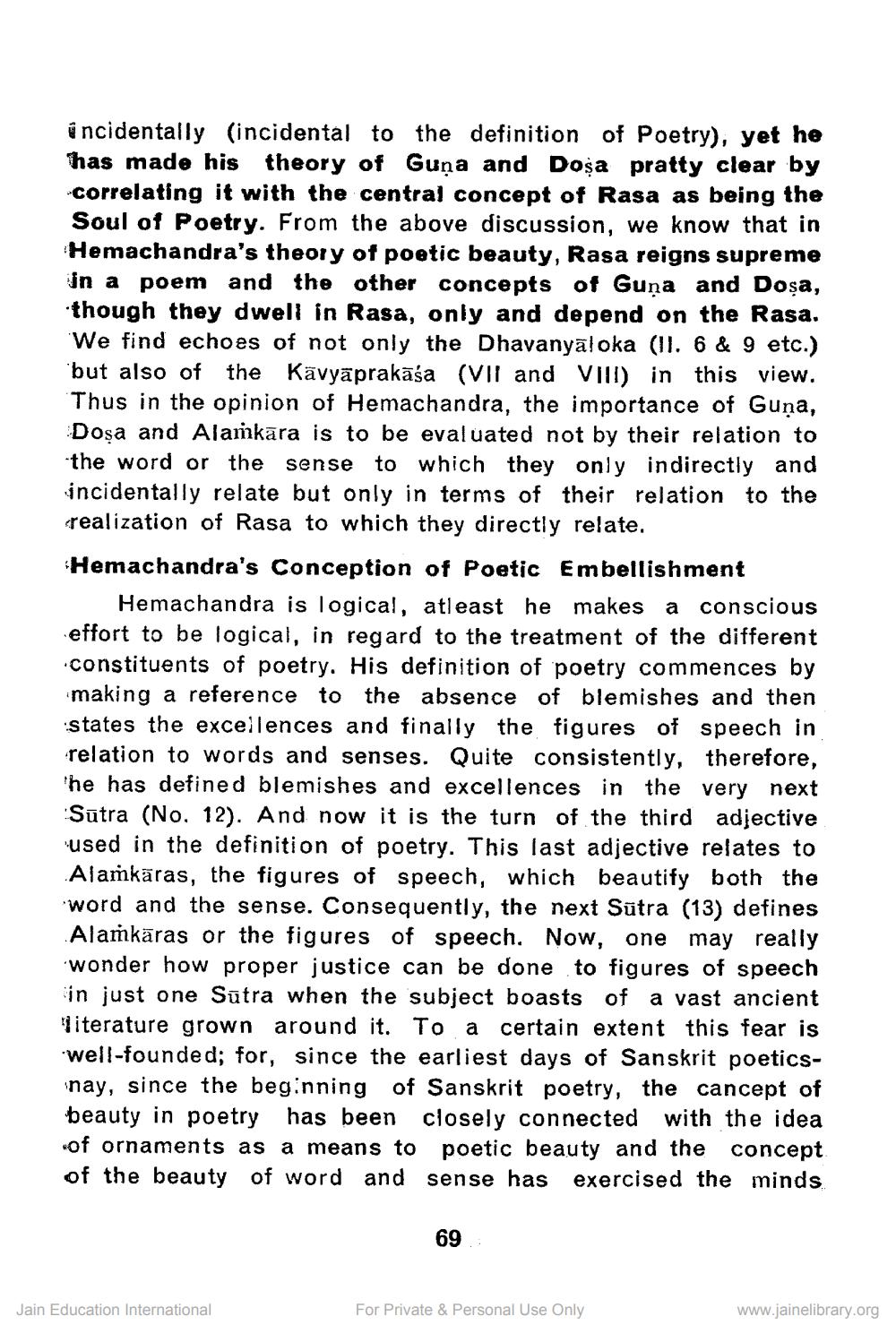________________
ncidentally (incidental to the definition of Poetry), yet he has made his theory of Guna and Dosa pratty clear by correlating it with the central concept of Rasa as being the Soul of Poetry. From the above discussion, we know that in Hemachandra's theory of poetic beauty, Rasa reigns supreme in a poem and the other concepts of Guna and Doṣa, though they dwell in Rasa, only and depend on the Rasa. We find echoes of not only the Dhavanyaloka (11. 6 & 9 etc.) but also of the Kavyaprakāśa (VII and VIII) in this view. Thus in the opinion of Hemachandra, the importance of Guna, Dosa and Alamkara is to be evaluated not by their relation to the word or the sense to which they only indirectly and incidentally relate but only in terms of their relation to the realization of Rasa to which they directly relate.
Hemachandra's Conception of Poetic Embellishment
Hemachandra is logical, atleast he makes a conscious effort to be logical, in regard to the treatment of the different constituents of poetry. His definition of poetry commences by making a reference to the absence of blemishes and then states the excellences and finally the figures of speech in relation to words and senses. Quite consistently, therefore, 'he has defined blemishes and excellences in the very next Sutra (No. 12). And now it is the turn of the third adjective used in the definition of poetry. This last adjective relates to Alamkaras, the figures of speech, which beautify both the word and the sense. Consequently, the next Sutra (13) defines Alaṁkāras or the figures of speech. Now, one may really wonder how proper justice can be done to figures of speech in just one Sutra when the subject boasts of a vast ancient iterature grown around it. To a certain extent this fear is well-founded; for, since the earliest days of Sanskrit poeticsnay, since the beginning of Sanskrit poetry, the cancept of beauty in poetry has been closely connected with the idea of ornaments as a means to poetic beauty and the concept. of the beauty of word and sense has exercised the minds
Jain Education International
69
For Private & Personal Use Only
www.jainelibrary.org




